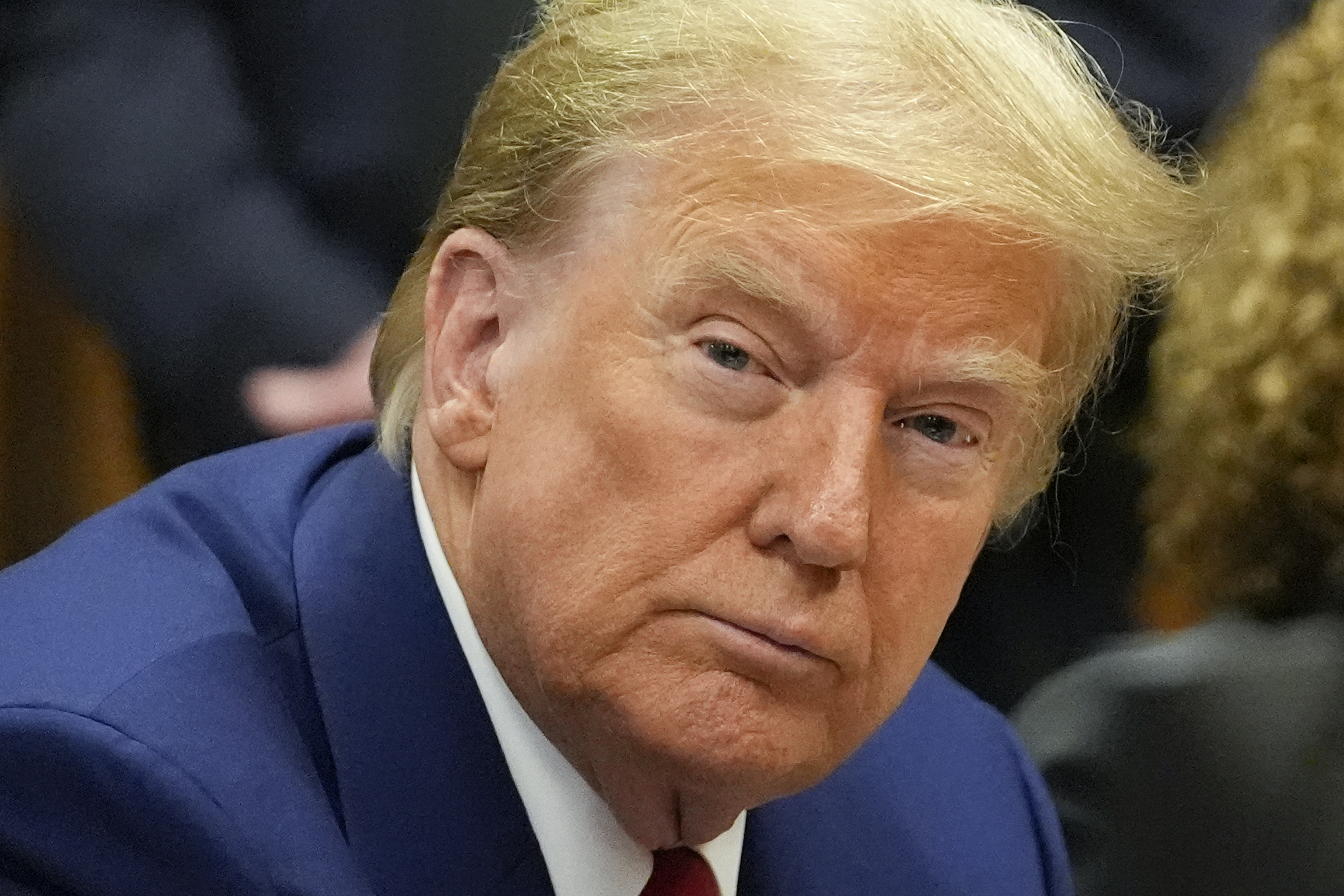
An appeals court in the United States has agreed to pause the collection of Donald Trump’s $454m civil fraud judgement, delivering a victory to the former US president and preventing authorities in New York from beginning to seize his assets.
A New York state appellate court on Monday granted Trump’s request to push back the deadline for payment, as well as reduce the bond he would be required to pay while he appeals.
Trump — who had been facing the immediate seizure of some of his real estate assets — now has 10 days to post a smaller $175m bond, rather than pay the full amount.
His legal team had previously argued that a $454m bond was too steep and that the former president would not be able to raise the funds before Monday’s deadline. New York Attorney General Letitia James had signalled she was prepared to seize Trump’s assets if he missed the cut-off date.
The revised bond amount and deadline come after Trump was found liable last month for overstating his net worth to dupe investors and lenders.
After the court’s ruling, in a post on his Truth Social platform, the ex-president said
his legal team “will abide by the decision … and post either a bond, equivalent securities, or cash”.
James’s office said Trump is “still facing accountability for his staggering fraud”.

Trump is the Republican Party’s presumptive nominee for the 2024 US presidential race, but he faces numerous legal woes — both civil and criminal — leading to mounting legal expenses.
Monday’s decision is expected to help ease his cash crunch. Last week, Trump’s lawyers wrote in a court filing that “obtaining an appeal bond in the full amount” of the judgement “is not possible under the circumstances presented” because getting a bond for such a large sum of money is “a practical impossibility”.
Trump has denied wrongdoing in the case and has accused authorities of conducting a politically motivated witch hunt that seeks to derail his re-election campaign.
On Monday morning, he used Truth Social to rail against those involved, including James, the attorney general who filed the civil lawsuit in 2022.
Trump accused them of trying to “to take away, and sell off, very successful properties and assets that took me years to zone, build and nurture into some of the best of their kind anywhere in the World — WHEN I HAVE DONE NOTHING WRONG!”
Last month, Trump was found liable for fraudulently inflating his net worth by billions of dollars to secure better loan and insurance terms. In his decision, Justice Arthur Engoron said Trump had engaged in fraud by overvaluing his properties, including his Mar-a-Lago estate in Florida, his penthouse apartment in Manhattan’s Trump Tower, and various office buildings and golf courses.
It was the culmination of a three-month, non-jury trial in Manhattan. The trial focused primarily on how much Trump should pay in penalties.
Judge Engoron ultimately ordered Trump to pay $355m, plus interest, leading to the current tally of close to $454m.
Ordinarily, under New York state law, a litigant can pause the collection of a penalty by paying the full amount in a bond, while they pursue an appeal.
Aside from the civil fraud case, Trump also faces four separate criminal indictments. Those relate to his efforts to overturn the 2020 election results, accusations he mishandled secret government documents, and an alleged hush-money payment during the 2016 race.
He has pleaded not guilty in all four cases. A trial date in the hush-money case was set on Monday for April 15.







